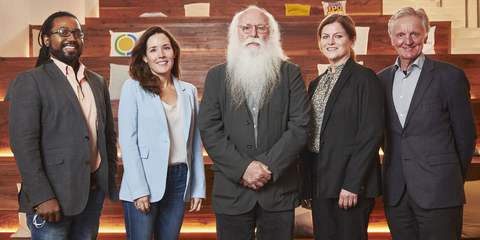
ST. LOUIS, Mo.– Benson Hill, Inc. (NYSE: BHIL, the “Company” or “Benson Hill”), a food tech company unlocking the natural genetic diversity of plants, today announced the release of its inaugural Environmental, Social and Governance (ESG) Report. Grounded in the United Nations Sustainable Development Goals and the general principles of the Sustainability Accounting Standards Board, the report is a significant milestone in the company’s commitment to governance, oversight, and transparency.
“Companies working on seed improvement have a unique opportunity and responsibility to help address climate, health, and equity challenges in our food system. By applying systems thinking from the seed to the consumer, we are working to innovate products that deliver inherent social and environmental benefit throughout the value chain,” said Benson Hill CEO Matt Crisp. “Our inaugural ESG report provides transparent assessment of how we catalyze impact for farmers, food companies, and ultimately consumers, as well as opportunity areas for improvement as we seek expert guidance to hone our ESG focus and culture.”
In addition to a materiality assessment, the online report includes highlights from Benson Hill’s key initiatives and accomplishments in 2021 that illustrate its vision for evolving the food system, including:
- The development of CleanCRUSH™ ingredients derived from the company’s proprietary soybean genetics. Designed as a less-processed alternative to commodity soy protein concentrate (SPC), CleanCRUSH ingredients can reduce the need for costly energy- and water-intensive protein concentrating steps traditionally required for plant-based meat and aquaculture feed applications.
- The completion of a carbon credit pilot in partnership with the Ecosystem Services Market Consortium to simplify the process for both farmers and food companies. Through the partnership, farmers can generate carbon credits and earn payments for reduced greenhouse gases and increased soil carbon sequestration as an outcome of their on-farm conservation practices.
- The incorporation of a Life Cycle Assessment (LCA) to validate energy and water savings for Benson Hill’s ingredient customers. The LCA followed ISO 14040 methodology, covering farm inputs, farm production and soybean processing, all the way to finished ingredients.
- The Food System Innovators program engages forward-thinking farmers to evaluate and grow new seed innovations in commercial production environments. The program is anchored on a close working relationship with a two-way flow of information, directly connecting farmers with Benson Hill’s research, product development, and sustainability teams.
With the release of its 2021 ESG report, Benson Hill also announced the formation of a Sustainable Food Advisory Council (SFAC) of independent experts to help inform the Company’s environmental and social priorities. This additional level of governance will provide an in-depth external stakeholder perspective and ensure the Company’s ESG strategy aligns with food system demands. The Council convenes prestigious experts and thought leaders from across the food value chain, including nonprofits, academia and the private sector who will advise the Benson Hill Board of Directors, the Sustainability and Governance Committee, and the Executive Leadership Team.
“The era focused on processing and chemistry to solve food system challenges has passed. We’ve entered the era of biology-based solutions informed by natural systems, as exemplified in Benson Hill’s technology and integrated approach,” said Dr. Howard-Yana Shapiro, Ph.D., Senior Fellow College of Agriculture and Environmental Sciences, the University of California, Davis. “I’m honored to join Benson Hill’s Sustainable Food Advisory Council and work with its innovative team to harness the full power of plants in our shared purpose to modernize our food system.”

